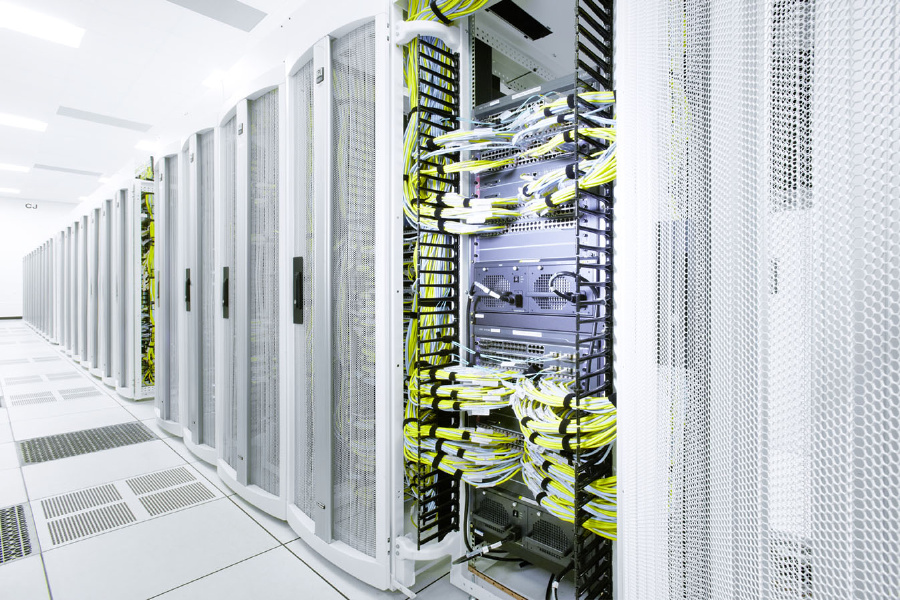Rising demand for increased data centre efficiency and a reduced carbon footprint
In today’s hyper connected world, data has become an indispensable asset to every business, and the use of the internet has exponentially amplified over the years. We can hardly imagine today’s world without smartphones, social media, e-commerce, and other Internet based services. In other words, ever greater quantities of data need to be transmitted, processed, and stored. The use of smartphones and social media, the Government’s emphasis on the digital economy, and the rise in tech-driven businesses have led to the exponential growth in data usage and storage.
Accelerated by the global pandemic, the world has undergone noticeable changes in terms of data consumption and the use of digital technology. It has become an integral part of our daily lives. Even though miles apart – we are closer than ever. With stay at home guidelines, we are always on, consuming, generating, and storing data through a variety of devices and platforms.
With increasing data usage and creation and with the growing significance of data in today’s businesses, data management is critical to harness large data sets for business growth. Companies want to leverage well-equipped data centers for better data management.
With demand for data centers growing at an unprecedented rate and the application of the Internet of Things (IoT) in all areas of work and play, the demand for computing power continues to accelerate – especially as the lure of big data gathers momentum. Data center operators are under pressures to keep up with demand in a timely, but also environmentally responsible way. Modern data centers need to be space-saving, time-saving, energy-saving, cost-saving and infinitely scalable.
Data Center Automation
You can’t truly optimize the efficiency of your data center without a holistic view of the system. Digital Data Center Operations (DDO) and Data Center Automation (DCA) enable you to identify inefficient power consumption, monitor and optimize water usage, and manage reporting to track progress and compliance.
Industrial-grade automation systems should be used to monitor and manage data center infrastructure. Industrial automation systems are robust and scale from small to extremely large and from simple to extremely complex. They are designed to talk to all kinds of equipment using many different protocols and have been designed for continuous operations over long periods, even while being upgraded. Furthermore, industrial systems are cyber-secure, complying with rigorous standards set in the various industrial environments in which they operate.
Data Center Automation systems are industrial automation systems adapted for use in data centers. They are designed to run continuously and reliably via built-in redundancy and are designed for scalability. Since they perform the functions of all the various siloed systems they replace, they are also less expensive to install and maintain, as only a single system is necessary to cover all building management and electrical monitoring tasks.
Revisiting the service strategies, optimizing operations, and reducing downtime
As data centers change their business models to match their strong sustainability goals, rethinking service strategies could help achieve them. When considering a data center service strategy, conditioning monitoring can go a long way in extending the life cycles of your equipment, managing the infrastructure, and therefore avoiding costly failures.
Condition-based monitoring provides a good example of cost-saving technology. Here maintenance is triggered using predictive indicators, rather than after a set time interval. Health information is collected from the electrical and mechanical systems, aggregated, analyzed, and compared to historical data to provide advanced warning of degrading equipment performance or impending failure. This approach optimizes operations, reduces the risk of downtime, and eliminates waste associated with premature or unnecessary maintenance.
Functions including predictive maintenance, energy optimization and dynamic load forecasting are possible only through consolidation of data center facility information – and consolidation is only possible when robust, reliable, industrial technologies are used.
Intelligent data centers
5G and the IoT are pushing data center designs to new levels of complexity. IT loads will become far more dispersed and fluid and the facilities that power them will have to be much more adaptable. To be truly efficient, the facility itself must be ‘self-driving’ and predictive so it can deliver energy and cooling to handle such transient loads.
Energy and insight for the data centers of tomorrow
In the dynamic, fast-paced data center industry, a passion for change is essential. Amongst several other sustainable mechanisms, decarbonisation and advanced technology could help data centers become energy efficient despite location limitations. With evolving scientific technology, the world’s largest corporates need to explore ways to meet business as well as environmental goals. Outsourcing, renewable energy, constantly researching and developing new mechanisms, and investigating ways to run data centers effectively and efficiently should be the need of the hour.
Sustainability is not just a buzzword, but of utmost importance today. With climate change top of the global agenda, data centers can effectively reduce carbon emissions, ensure efficacy, and help towards a greener, healthier, and technologically advanced world.
With its history and deep knowledge of both energy and automation, as well as its role in the transition to smart and autonomous systems, ABB is at the forefront of creating efficient and reliable data centers.
The spokesperson is - Somnath Keskar, Segment Lead, Data Center, Smart Manufacturing business, Process Industries, ABB Limited.




















